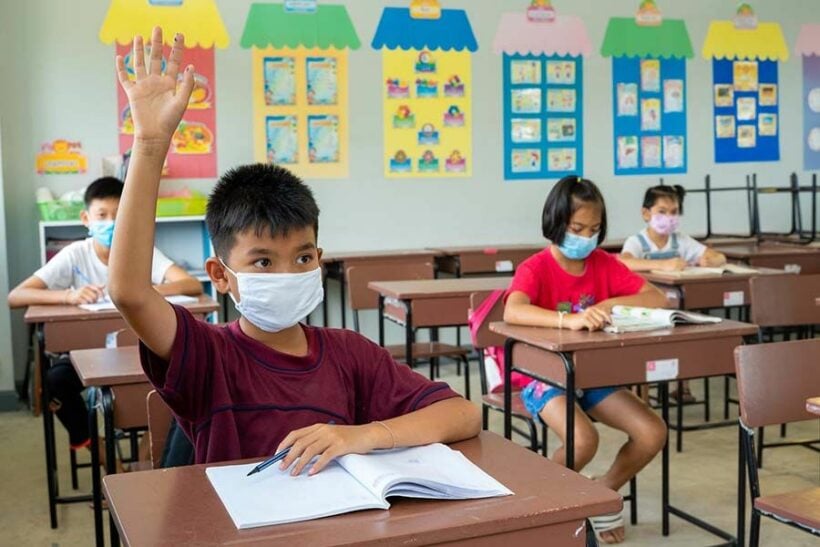Thailand’s education system: Part 2

Thailand’s formal education system has roots in the 13th century when King Rakhamhaeng the Great developed the Thai alphabet. As Thailand is among the few countries that was never colonized by European powers, its education system was developed mostly indigenously. Historically, commoners could receive an education at Buddhist monasteries, which is still offered today.
During the 19th century, Thailand’s education system has been modernised in an effort to match that of the Western world. Many elements that exist today can be attributed to this era when the contemporary Thai higher education system modeled itself after the U.S. system of education. This included using a similar degree structure, general-education component in undergraduate curricula, and class credit system. Now more than ever, Thailand is increasing its integration into the global education community by developing partnerships with other ASEAN countries.
The governing of Thailand’s education system
The national Ministry of Education oversees the education system with a majority of public and private institutions falling under its guidance. Reforms initiated in the late 1990s introduced greater decentralisation of the Thai education system which broke from the historically highly-centralised format. However, due to the junta government taking over in a 2014 coup, the reforms of 2016 sought to re-centralise the elementary and secondary education system.
Compulsory education
Thai students’ compulsory education spans over the first 9 years of “basic education.” This can be broken down into 6 years of elementary school and 3 years of lower secondary school. Public school education is free to Thai students until grade 9. This includes 3 free years of pre-school and 3 free years of upper-secondary education. However, these latter options are not mandatory.
Testing
Thai students under go 2 national examinations during their elementary school years. The first exam is to be taken at the end of Prathom 3, while the second exam is set for the end of Prathom 6. Upon passing the second exam, students will be awarded a Certificate of Primary Education.
Lower and secondary education
At 12 years of age, students will start secondary education. Lasting for 3 school years, these grade levels are called Mattayom 1 to Mattayom 3. Upon completing Mattayom 3, students can elect to continue their studies in upper secondary school, which begins at Mattayom 4 through 6. Both the elementary and secondary school curriculum is set nationwide, according to the 2008 Basic Education Core Curriculum. In order to be promoted to the next grade level, students must sit and pass examinations in each subject, with the standards to be met by each student being set by local school authorities. This has caused issues, historically, as many students are passed when they technically did not actually pass the exams.
Exit exams
At the end of Mattayom 4 and 6, pupils sit the National Institute of Educational Testing Service’s Ordinary National Education Test (O-NET.) Currently, these exam results account for 30% of the final Mattayom 6 grades, which is a criterion for university admission. But, in 2016, the 378,000 students that sat the O-NET exam, only passed an average of 1 out of 5 test subjects.
University admissions
The university admissions process is generally based on both the upper-secondary school GPA and the results from standardised entrance exams. Since 2018, there is now a Thai Central Admission System, which is utilised by 54 public universities. Direct university admissions has been limited as well as the importance of entrance exams as critics claimed that they excluded students from lower socio-economic backgrounds.
Thai university global rankings
Thai universities still have not ranked well globally. None are considered world-class universities and did not rank in the top 500 of the 2018 Times Higher Education World University Ranking. According to US News, Mahidol University is the highest ranking university in Thailand, while Chulalongkorn comes in second, and Chiang Mai University coming in third. The report describes the top global universities with Mahidol ranking 51.4 on the global report and coming in at 520 internationally. The US News ranking is comprised of a school’s performance across a set of widely accepted indicators of excellence.
Issues in Thailand’s education system
Many issues have arose surrounding the passing of students in Thailand’s government-funded schools. From unqualified teachers having a clear impact on the quality of education, to the mandatory passing of students on to the next grade level. In the Western world, we view cheating as unacceptable, while many Thai students consider it as helping. It is important to note that Thailand and many other Asian countries feature a collective society, while Western countries are individualistic societies.
These differences can and will appear in many different settings, including that of education. When cheating occurs in classrooms in Thailand, it is not as heavily criticised as many students see learning as a group effort. However, when it comes to individual performances on exams, the results are evident.
Regardless, Thailand is addressing some of the education gaps that set it at a lower ranking than its neighbours. From political instability to a rapidly aging population, the future of Thailand’s education system depends upon actions taken to mitigate these effects over the long run.
To see more about Thailand’s education system, check out our Part 1 guide.
Latest Thailand News
Follow The Thaiger on Google News:


























